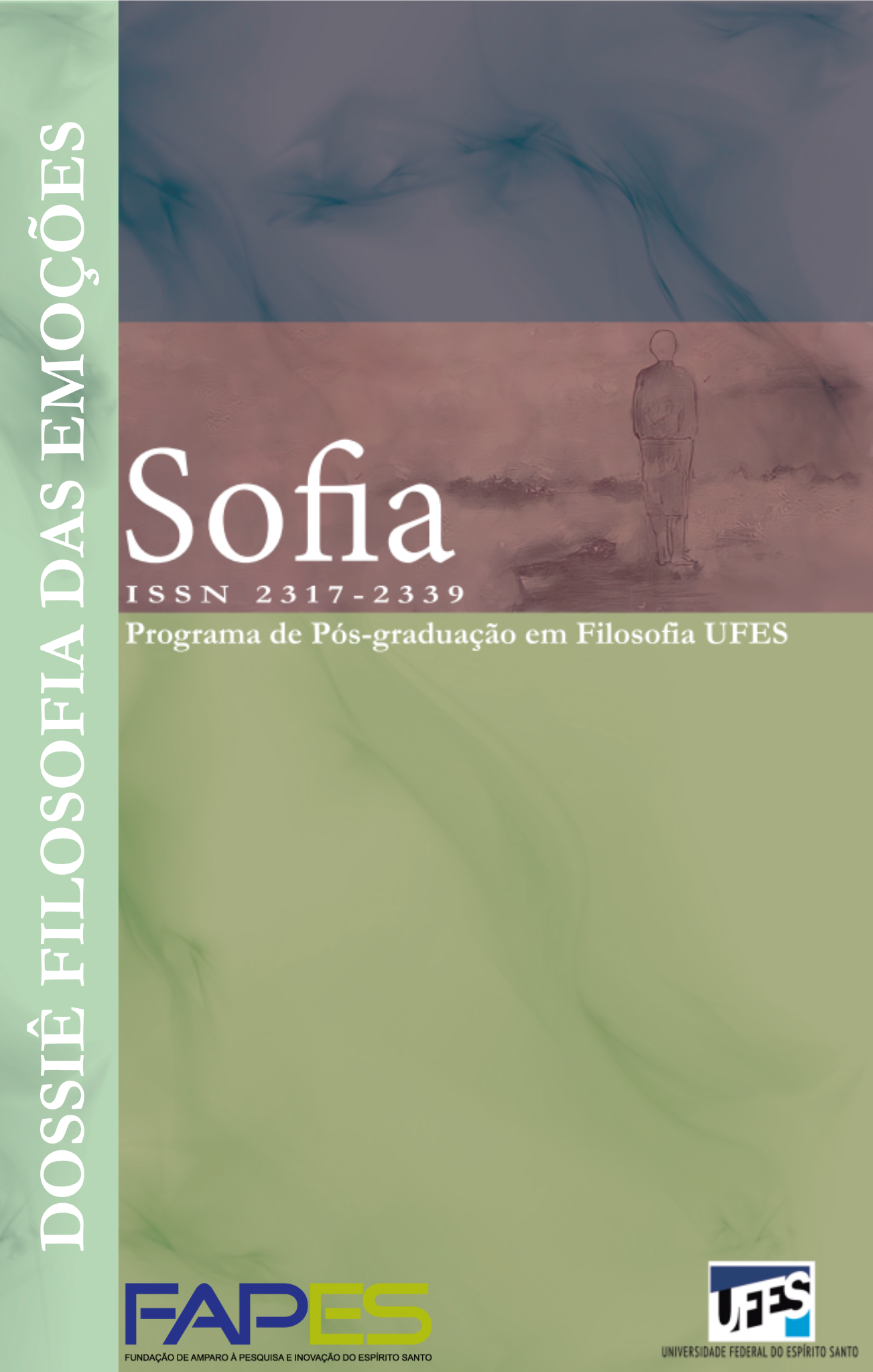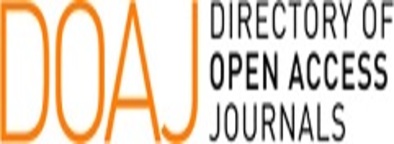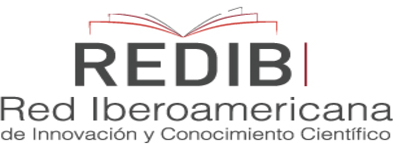Mechanistic and ecological approaches to emotion
a comparative study
DOI:
https://doi.org/10.47456/sofia.v12i2.43341Keywords:
mechanistic approach to the mind, emotions, social affordances, mutuality, niche, robotsAbstract
The aim of this article is to analyze and problematize the mechanistic and functionalist perspective of emotional processes in light of the ecological theory of perception/action. To this end, we present Marvin Minsky's (2006) proposal for emotional machines, for which emotional processes would be brain states that operate according to principles defended by the classical computational theory of mind. In contrast, we will present a proposal for the analysis of emotional processes inspired by the propositions of the ecological theory of perception/action (Gibson, 2015), in particular based on the concept of social affordance, that is, the possibilities of action that the bodily/gestural dynamics of agents offer directly to other agents, without the need for representational mediation. In such an analysis, we will try to highlight the relevance of co-evolutionary processes according to the principle of reciprocity and the adaptive role of emotional processes in social agents, which are overlooked by the classical computational approach to the mind, but are necessary for the effective instantiation of emotions, and not only for their recognition or simulation in robotic systems.
Downloads
References
ALLEY, T, R. Organism-environment mutuality epistemics, and the concept of an ecological niche. In: Synthese 65 (1985) 411-444.
ARDÓN, P., PAIRET, E., LOHAN, K. S. RAMAMOORTHY, S. & PETRICK, R. P. A. Affordances in Robotic Tasks - A Survey. In: IEEE Transaction on Robotics, vol. XX, no. X, December 2019.
CHEMERO, A. Radical Embodied Cognitive Science, Cambridge, MA: MIT Press, 2009.
CHEMERO, A. A. & TURVEY, M. T. Gibsonian affordances for roboticists. In: Adaptive Behavior, vol.15, no 4, p. 473–480, 2007.
EKMAN, P., & OSTER, H. Facial’ expressions of emotion. In: Annual Review of Psychology, 1979, 30, p. 527-554.
GAVER, W. W. Technology affordances. In: Proceedings of the SIGCHI conference on Human factors in computing systems. ACM, 1991, p. 79–84.
GIBSON, J. J. The ecological approach of visual perception. Classic edition. New York: Psychology Press, 2015.
IMANI, M. & MONTAZER, G. A. A survey of emotion recognition methods with emphasis on E-Learning environments. In: Journal of Network and Computer Applications, Volume 147,102423, 2019. Acesso em 15/06/2023. Disponível em: https://www.researchgate.net/publication/335425375_A_survey_of_emotion_recognition_methods_with_emphasis_on_E-Learning_environments#fullTextFileContent. Acessado em: 23 de fevereiro de 2023.
LINDQUIST, K. A.; SATPUTE, A. B. & GENDRON, M. Does Language Do More Than Communicate Emotion? In: Current Directions in Psychological Science. Volume 24, Issue 2, 2015.
LOEWENSTEIN, W. R. The touchstone of life: Molecular information, cell communication and the foundations of life. New York-Oxford: Oxford University Press, 1999.
MAITHRI, M., RAGHAVENDRA, U., GUDIGAR, A., SAMANTH, J., BARUA, P. D., MURUGAPPAN, M., CHAKOLE, Y., U. & ACHARYA, U. R. Automated emotion recognition: Current trends and future perspectives, Computer Methods and Programs. In: Biomedicine, Volume 215, 2022.
MCARTHUR, L. Z. & BARON, R. M. Toward an Ecological Theory of Social Perception. Psychological Review, vol. 90, no. 3, 215-238, 1983.
McGRENERE, J. & HO, W. Affordances: Clarifying and evolving a concept. In: Graphics interface, 2000, p. 179–186.
MINSKY, M. The emotion machine: Commonsense Thinking, Artificial Intelligence, and the Future of the Human Mind. New York: Simon & Schuster, 2006.
RIDGE, B. & UDE, A. Action-grounded push affordance boots trapping of unknown objects. In: 2013 IEEE/RSJ International Conference on Intelligent Robots and Systems. IEEE, 2013, p. 2791–2798.
SAHIN, E., ÇAKMAK, M., DOGAR, M. R., UGUR, E & UÇOLUK, G. To afford or not to afford: A new formalization of affordances toward affordance-based robot control. Adaptive Behavior, vol.15, no.4, p. 447–472, 2007.
TURING, A. Computing Machinery and Intelligence. Mind, Volume LIX, Issue 236, October 1950, Pages 433–460, 1950. Acesso em 11/10/2023. Disponível em: https://edisciplinas.usp.br/pluginfile.php/7583067/mod_resource/content/1/TuringComputing.pdf. Acessado em: 23 de fevereiro de 2023.
WALKER-ANDREWS, A. S. Perceiving Social Affordances: The Development of Emotion Understanding. In: Horner, B. D., Tamis LeMonda, C. S. (Eds.) The development of social cognition and communication. New York, NY: Psychology Press, 2013.
Published
How to Cite
Issue
Section
License
Copyright (c) 2023 Mariana C. Broens

This work is licensed under a Creative Commons Attribution 4.0 International License.
Dada a política de acesso público da revista, o uso dos textos publicados é gratuito, com a obrigação de reconhecer a autoria original e a primeira publicação nesta revista. Os autores das contribuições publicadas são inteiramente e exclusivamente responsáveis por seus conteúdos.
I Os autores autorizam a publicação do artigo nesta revista.
II Os autores garantem que a contribuição é original e assumem total responsabilidade pelo seu conteúdo em caso de impugnação por terceiros.
III Os autores garantem que a contribuição não está sob avaliação em outra revista.
IV Os autores mantêm os direitos autorais e concedem à revista o direito de primeira publicação, sendo o trabalho licenciado sob uma Licença Creative Commons Atribuição-BY.
V Os autores são autorizados e incentivados a divulgar e distribuir seu trabalho on-line após a publicação na revista.
VI Os autores dos trabalhos aprovados autorizam a revista a distribuir seu conteúdo, após a publicação, para reprodução em índices de conteúdo, bibliotecas virtuais e similares.
VII Os editores reservam o direito de fazer ajustes no texto e adequar o artigo às normas editoriais da revista.


















